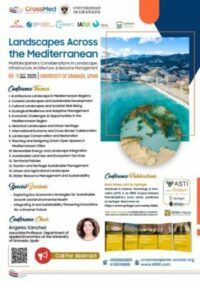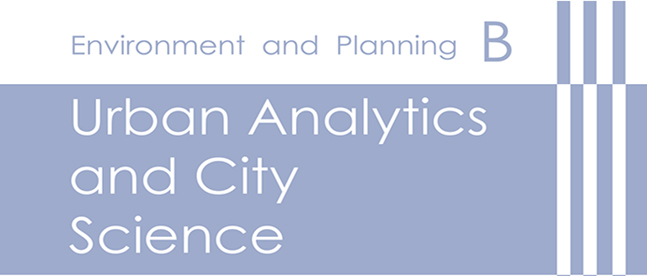ISSN (print): 2399-8083
ISSN (online): 2399-8091
Call of the Journal:
Jan
2021
Feb
2021
May
2021
Jun
2021
The majority of the planet’s population now live in cities. As urbanisation continues apace, especially in Africa and Asia, the 21st century is the Urban Age with cities as the primary sites of risk and opportunity. Climate emergencies, vast social inequality, political upheaval and health crises hit urban areas particularly hard. Yet, technological and social innovations, new politics and economic formations, and novel knowledge – including that generated using digital data and data analytics – disproportionally emerge from and circulate among urban areas. Seen in this light, it is no surprise that one of the UN’s Sustainable Development Goals is devoted specifically to cities: SDG 11 is about Sustainable Cities and Communities. For the UN making cities sustainable involves, among others,“creating career and business opportunities, safe and affordable housing, and building resilient societies and economies. It inv olves investment in public transport, creating green public spaces, and improving urban planning and management in participatory and inclusive ways”. The challenges of realizing SDG 11 are significant, and advances in data analytics are enabling relevant actors to better und erstand the scale and nature of issues, monitor progress, evaluate interventions and propose solutions using simulation and geo-computational tools. However, the use of data analytics – i.e. the analysis of digital data using algorithmic and other advanced techniques – remains geographically uneven. This special issue aims to highlight the state of the art in terms of research focused on developing cities where data may be scarce and incomplete, and unique challenges may require the development of innovative methods and approaches. This special issue welcomes contributions on themes such as (but not limited to): Studies illuminating and furthering our understanding of the various types of informality present in developing cities (housing informality, labour informality, transport informality, etc); Modelling of access to, and the impact of, amenities such as urban green space, health services and commerce; Studies concerning urban health and wellbeing, and its connection to the build environment; Modelling of (strategies to enhance) urban resilience in response to, for example, flooding or climate issues; The application of datasets derived from remote sensing to urban questions (i.e., moving beyond mapping); Granular, high resolution approaches to studying within-city mobility and accessibility and its impact on marginalised residents; Studies bringing data analytic approaches into urban policy-making or policy evaluation; Studies of the impact of Covid-19 on developing cities and their inhabitants and mobilities.
United KingdomData Science for Developing Cities
The majority of the planet’s population now live in cities. As urbanisation continues apace, especially in Africa and Asia, the 21st century is the Urban Age with cities as the primary sites of risk and opportunity. Climate emergencies, vast social inequality, political upheaval and health crises hit urban areas particularly hard. Yet, technological and social innovations, new politics and economic formations, and novel knowledge – including that generated using digital data and data analytics – disproportionally emerge from and circulate among urban areas. Seen in this light, it is no surprise that one of the UN’s Sustainable Development Goals is devoted specifically to cities: SDG 11 is about Sustainable Cities and Communities. For the UN making cities sustainable involves, among others,“creating career and business opportunities, safe and affordable housing, and building resilient societies and economies. It inv olves investment in public transport, creating green public spaces, and improving urban planning and management in participatory and inclusive ways”. The challenges of realizing SDG 11 are significant, and advances in data analytics are enabling relevant actors to better und erstand the scale and nature of issues, monitor progress, evaluate interventions and propose solutions using simulation and geo-computational tools. However, the use of data analytics – i.e. the analysis of digital data using algorithmic and other advanced techniques – remains geographically uneven. This special issue aims to highlight the state of the art in terms of research focused on developing cities where data may be scarce and incomplete, and unique challenges may require the development of innovative methods and approaches. This special issue welcomes contributions on themes such as (but not limited to): Studies illuminating and furthering our understanding of the various types of informality present in developing cities (housing informality, labour informality, transport informality, etc); Modelling of access to, and the impact of, amenities such as urban green space, health services and commerce; Studies concerning urban health and wellbeing, and its connection to the build environment; Modelling of (strategies to enhance) urban resilience in response to, for example, flooding or climate issues; The application of datasets derived from remote sensing to urban questions (i.e., moving beyond mapping); Granular, high resolution approaches to studying within-city mobility and accessibility and its impact on marginalised residents; Studies bringing data analytic approaches into urban policy-making or policy evaluation; Studies of the impact of Covid-19 on developing cities and their inhabitants and mobilities.
Clarivate Analytics: Current Contents – Social & Behavioral Sciences; Clarivate Analytics: Social Science Citation Index; EBSCOhost; PubMed: MEDLINE (selectively indexed); SCOPUS.
Info at: journals.sagepub.com/author-instructions/EPB#OpenAccess
Guest Editors
Neave O’Clery
Tim Schwanen
Juan Carlos Duque
Seraphim Alvanides










